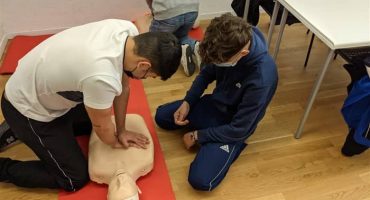IELTS, PTE, TOEFL, etc. are the tests that students need to take to prove their English language proficiency. Students from non-English speaking nations who seek international education consultants in English-speaking nations, must take any of these tests. Every country recognizes different test and the student must take particular test in order to study in that country. These tests check the candidate on 4 aspects of English language – reading, writing, speaking and listening.
As these tests require the candidate to read, write, speak and listen, one wonders how students with hearing impairment take it! While there are provisions in most of the course curriculums for students with hearing and speech impairments, the conducting authorities of such tests have also made special arrangements for students with special abilities.
The test authorities aim to ensure that every candidate is treated fairly and objectively and that they are given optimum conditions to take their exams, for which they can make arrangements to accommodate special circumstances or requirements to enable test takers to attend a test centre, to understand questions and to give their exam answers.
Special Arrangements for Students with Special Abilities
When it comes to IELTS or any such test, it may take up to 3 months for some special arrangements to be made for students with hearing impairment; this is the reason the candidates are advised to make application as soon as possible through the test centre. In this case, the test centre will do the following for the candidate:
- Confirm the application deadline (this depends on the arrangements candidate needs and is typically from two weeks up to three months before the test)
- Ask for full details of difficulty
- Make the arrangements needed to take the test
- If the centre does not have the equipment or space needed by the candidate (e.g. a separate room), they will do their best to help find another centre that does
- The centre may also ask to provide a medical certificate
Authorities can also make arrangements for headphones or special amplification equipment upon request.
Lip-Reading Version of Listening Test
There is a version of the Listening test for students with hearing impairment in which the student needs to read the lips of the supervisor (lip reading). In this, instead of playing a recording, the supervisor (the person who gives Listening test) reads out the material. Each text is read out twice. The supervisor will stop reading from time to time during the second reading, which gives the candidate time to write the answers. However, the candidate must be prepared to take this lip-reading version of Listening test and must make sure that he/she can lip-read a person who is speaking English. They can practise with sample papers before the test.
Exemptions and Endorsed Certificates
There have been documented evidences where the students have been exempted from Listening test in case of severe hearing loss/disability and if the candidate cannot lip-read. This means that the candidate does not need to take the test. However, the candidate must apply for exemption before taking the test. Exemption can be taken from one or two components depending upon the disability (hearing and/or speaking). The candidate is given a score for the missing component(s) based on their performance on the other components of the test. This score is used to calculate Overall IELTS Band Score, and the Test Report Form has the following statement printed on it: ‘Due to extreme speaking/hearing (etc.) difficulties, this candidate was exempt from the Speaking/Listening (etc.) test(s). The Speaking/Listening (etc.) test Band Score(s) has/have been notionalised on the basis of the average of the other two/three Band Scores.’
Timeline & Extra Cost
As the test authorities aim to ensure every candidate is treated fairly, they do not charge anything extra for the Special Arrangements service. They only require the candidate to contact the authorities before the registration deadline so that necessary arrangements can be made.
It is to be noted that no application will be considered unless there is a supporting medical certificate. Therefore, candidates need to make sure they furnish the medical certificate for their disability beforehand.
Author Bio
Bella Cameron is an Australian by birth and loves internet and education. She chose blogging in the field of education out of her interest and took it full-time. She now assists Asia Pacific Group in preparing and designing IELTS & PTE training curriculum. She is also a fitness enthusiast and likes writing on similar topics. She loves wildlife and scuba diving!



